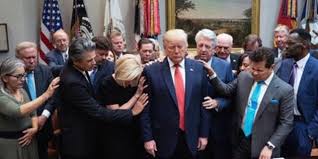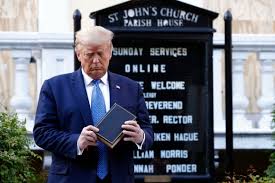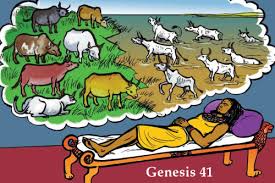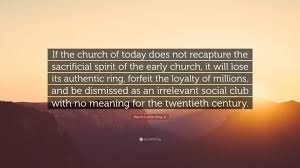My Friends,
As we all see our country in peril this week, many of us have felt a deep sense of frustration. And in the heat of argument and disagreement, many of us have felt the urge to break connection from those with whom we have formerly broken bread. I choose to keep connections these times, even if I passionately disagree. Love is greater than politics, and in many ways, democracy needs dissent to break us out of our political echo chambers. Many of you with whom I disagree, I also love and respect, and it is in that spirit of love and respect I intend to disagree with many of you today.
It is true that to many of you I am an outsider. I have been raised in the tradition of the The Cross, I value the teachings it gave me in my formative years, gave me the strong knowledge and education it seeded in me. But I am no regular attendee of any service. As such, I have struggled not to take my current frustration and slip into a mode of throwing stones, but rather to remember as Paul told the Corninthians that my words, whether in the tongues of men or angels, is but a resounding gong if I speak them without love.
In my own spiritual meditations, I often struggle with how to reconcile the divine with the political. Many faiths teach us to prefer the eternal over the worldly, and yet we live in the world. Our choices shape that world. As citizens in democratic republic, it is part of our faithful duty to acknowledge this and discharge our wisdom and discernment to elect the best possible leaders. And yet, politics has become so adversariaI that it seems that engaging political discussion must necessarily contradict the kindness with which we are commanded to love our neighbor as ourselves. I must admit that I have always found Christ’s command to “Render unto Caesar” to be befuddling. The spiritual commands us to love; the political commands us to contest injustice, which we often see in our political opponents, who we often contest as our enemies. Perhaps the best resolution came from a podcast I heard when searching for answers from this. Though it comes from a Buddhist faith, and you may feel that nullifies its validity, I feel it makes a salient starting point for our disagreement.
Do what you must do in the world with the other, but hold them in your heart.
So, as I hold you in my heart, I must air my frustration, not from a place of malice or anger, but to speak the injustice that has been made known to my heart this week.
It is no secret to state that in this country, Evangelical Christianity has generally aligned with Republican politics since at least the 1970s. There is no euphemistic, non-partisan, sugar coated way to state this fact. For many political issues, the Republican party has been able to rely on the majority of the Evangelical vote, whether for it be the long standing stance on issues of abortion or the more recent issues like the ability to hold live religious services in the middle of the COVID pandemic, the two entities have held an overlapping Venn Diagram for decades: Republicans speaking for issues that the flock holds dear, and the flock returning that loyalty with steady and reliable votes.
The marriage is not perfect or absolute, of course, but what other choice is out there? In American politics, not voting Republican seems (at the national level, at least) to vote for a party that is less religious and more secular on the whole. Sure, the Democrats espouse the values of lifting up the poor and downtrodden through government intervention, but they are often viewed as inherently skeptical, the antithesis of Christian values on so many levels and for so many reasons.
Chrsitians, are, of course, not monolithic voters, but this loyalty has made the Conserivative Evangelical movement a powerful force in American politics. Politicians who have wanted success have sought the endorsement of famous preachers–the Franklin Grahams, the Pat Robertsons, the James Dobsons– to prove their bona fides. In doing so, voting for the Godly candidate can often seem like a spiritual duty, and the metaphors of political debate and spiritual warfare can become easily mixed.

This became problematic in the last Presidential election. A non-traditional Republican candidate gained popularity in Donald Trump. It seemed a strange alliance, but politics famously makes strange bedfellows. His openly checkered moral past seemed an odd fit for a community that looked heavenward and held themselves to such high standards. But the union was made. The leaders of the flock endorsed him. The Christian virtue of forgiveness was touted as a way forward.
But many of us, both inside and outside the Church community became worried about much, much more than paying off hush money to former mistresses or surreptitiously recorded “locker room talk.” Many of us worried how the new President’s value system and lack of experience would undermine the very structure of our democracy. We worried that his serial dishonesty would make it difficult to trust the government. We worried that his tendency to attack the press and opponents as un-American would make it difficult for competing views to work together, would make it difficult to see “the other” as anything other than an enemy. We worried his instability and narcissism would make it difficult for him to work in an environment where the clash of competing ideas is the hallmark of our system of government, where people paradoxically have to disagree to work together. We worried what noxious weeds would grow from these small seeds in the course of a four-year presidency.
Sure, people have criticized presidents with whom they disagreed, but the signs were obvious from the beginning, the lies about the inaugural crowd size, the nods to racists in Charlottesville, the demeaning language and policy for anyone who dared to disagree, the erratic behavior in negotiation after negotiation. And yet, when Evangelicals were asked how much longer they could stick up for a man who evinced such decidedly unholy values, the leaders of the movement often replied with the tale of King Cyrus to not only excuse these actions, but to actually claim that God was working through the President. And it was easy to see this. Unlike other Republican candidates who often paid lip service to Evangelicals, Trump came through. He claimed Jerusalem for the Jews in Israel. He tipped the balance of the Supreme Court for a generation. He fought for churches to have the right to stay open, despite the fact that scientists at the CDC were claiming it could exacerbate disease spread. He was, for many, making American Great by making it more godly.

This disagreements became massive fissures as 2020 put pressure on our body politic like few years in our history. Between COVID and protests for racial justice, if often felt like our democratic experiment was coming apart at the seams. In trying times, we often turn to our faith for answers. I kept hoping that the evangelical leaders who plucked King Cyrus from obscurity would remember one of my favorite stories from the Old Testament, one even a backslider like myself remembered. I had hoped that on the day the President gassed the ordered protesters tear gassed without warning so he could hold up the Bible in front of a church for a photo-op, a move the Bishop of DC condemned, that he would open Bible toward the end of Genesis to find the parable that seemed perfect for our country in its time of need. It’s the story of Joseph, sold into slavery by his brothers to re-emerge as an advisor to Pharoh of Egypt the greatest nation of its time. I remember seeing at one point this year an Evangelical use interpretation of this story as a way to justify that sometimes injustice can blossom into something wonderful if we wait on the will of God. But what that example forgot was that Joseph was able to save Egypt through the interpretation of the Pharaoh’s dream, in which the seven lean cattle consumed the seven fat ones, predicting an incoming famine, one that the will of God had Joseph suggest that Egypt prudently use its amassed and abundant fortune to help its citizens through the lean times. And as the rest of the world starved, Egypt, under God’s blessing thrived.

In 2020, we didn’t thrive. For many, the lean cows consumed the fat ones. People have suffered health and economic strains for most of the year. It became clear that many Americans felt that the government’s handling of these unusual times had been inadequate, as the federal government dithered away months without doing anything to address the mounting crisis.. Fortunately, our faith in the Founding Fathers is restored anew as We the People have the opportunity to change leaders through election. And this year has certainly been the most contentious election in my lifetime, a statement that has to be true for anyone born after 1968. As I tried to express my opinion in the lead up, to persuade my friends and neighbors, my love has had to restrain my anger so many times, as I’m sure it has yours. Eventually, the dust settled, and the results of the election became clearer, and the nation had chosen a new direction. However, many of those seeds that had begun to grow at the beginning of the presidency had grown into a mass of choking weeds, a web of misinformation, a narcissism that refused to accept loss for the good of the country, a belief that anyone who would dare disagree wasn’t really American enough to count.
Now, our political system is at a breaking point we haven’t seen in at least a century, as a vocal minority hope to declare an open civil war. Unsatisfied by the results of a legally held election, the seeds of distrust, racism, and misinformation that have been nurtured steadily over the last four years came to full force at the Capitol building on Wednesday. Many Americans watched the news in horror on Wednesday, wondering how American got here.
It is not uncommon for many of us, at times of despair and hopelessness to turn to faith as a refuge. When chaos abounds, when all logic falls short and resolves in paradox, faith is the assurance. It assures us this world is ultimately of temporal consequence in light of the eternal. It encourages us to not worry, as our treasures are elsewhere, where moth and rot and marauding mobs can not destroy. In light of of Earthly Chaos, it is comforting to find the eternal, everlasting Heavenly Father in control.
But here is the crux of my frustration with the Evangelical church, a frustration that I know that is shared both outside and within the church community. I sat on my couch on Wednesday, horrified–but not surprised–at the chaos engulfing our nation’s capital. For many of us who have been pointing out the warning signs along–the attacks on free, objective media, the mental instability, the outright dishonesty, and most importantly, the number of our friends and family who have openly promised violence should the election not go the way they want–Wednesday was the inevitable outcome of denying objective truth, of looking the other way, of running roughshod over democratic norms, of hollowing out a government that can’t help the weakest in our time of need, of emboldening liars to undermine the faith in democracy, of looking the other way as they lie because we want what they promise us, not because it’s good for us.
As Americans, we are free to choose and advocate for whatever political position we choose, but we must in the real world, evaluate the outcomes of our choices, whether it’s the cars we buy, the company we keep, or the candidates we support. If you chose to look the other way and enable this dishonesty, the anti-democratic demagoguery, the racism, this week was in part a culmination of those choices. We many want to retreat back to the ground of the spiritual and claim that love will unite us, or to put this fragile mess we’ve made back in God’s hands to fix, but to do so without an ownership of our political choices that brought this about is disingenuous. While we look to the divine, we must still Render our duty unto Caesar. We must do what we do in the world.

I’ve felt this frustration for years, and it has culminated this week. Whenever I came to this place, I often thought of Dr. King’s admonition of the church during the Civil Rights Era, standing on the side of status quo, allowing the segregationists to persist with their inaction, worrying that the church would marginalize itself as an irrelevant social club. The church has done exactly the opposite; it has shown itself as a powerful force in American politics. Perhaps nowhere was this driven home for me as the crowd in DC had several images of the cross flying high, both in the traditional form I remember, but in other marriages of the Cross and anti-democratic sentiment. I know that those flags don’t represent every follower of The Cross. As I have mediated on these issues over and over this year, I have been edified to know and meet many patient members of the flock who yearn to wrest back their faith from the clutches of the powerful who wish to pervert it. But they are often a voice in the wilderness.

The pulpit, so often, delivers votes. Clergy, Congress, and the laity alike claim it for their moral authority. In this important moment of history, the obvious warning signs that this crisis could and would happen were ignored as powerful men and women in pulpits made excuses from the outset If the pulpits choose to do so, and those votes, and the acceptance of candidates like Trump and his enablers foment the insurrections and political chaos we saw this week, it is dishonest and disingenuous for those pulpits to retreat behind the scriptures and throw their eyes to the heavens and claim that only God can solve the crisis in which we find ourselves, a crisis not created by some disembodied force of evil, but a crisis we have caused by our own inattention to the myriad warning signs. Those who have used God’s forgiveness and their interpretation of the divine will who then turn around and pray for God’s healing do so to cover their temporal actions, their hide their complicity in the current crisis in which we find ourselves. We may and should always turn our eyes and hearts heavenward to be inspired to our higher selves, but here on Earth, we must account for our choices and do what we must do in the world to make things better, right, and just to bring those heavenly values to fruition in the here and now.
I fear that I have begun to go to the gong and the cymbal, or at least I have rambled past your point of patience. For that, I apologize. Our turn to faith in a time of need is proof we yearn to make this world a better place. Perhaps that is storing up treasures, or becoming unnecessarily attached. But as we look to the sacred, we still live in the temporal. Let our heavenward gaze always be a guide to where we aspire to be, but never let us blind us to the path we have chosen to walk in the world, the path we continue to choose with every vote we cast, every leader we support, every position we advocate.
With with love and humility, your brother.



Recent Comments